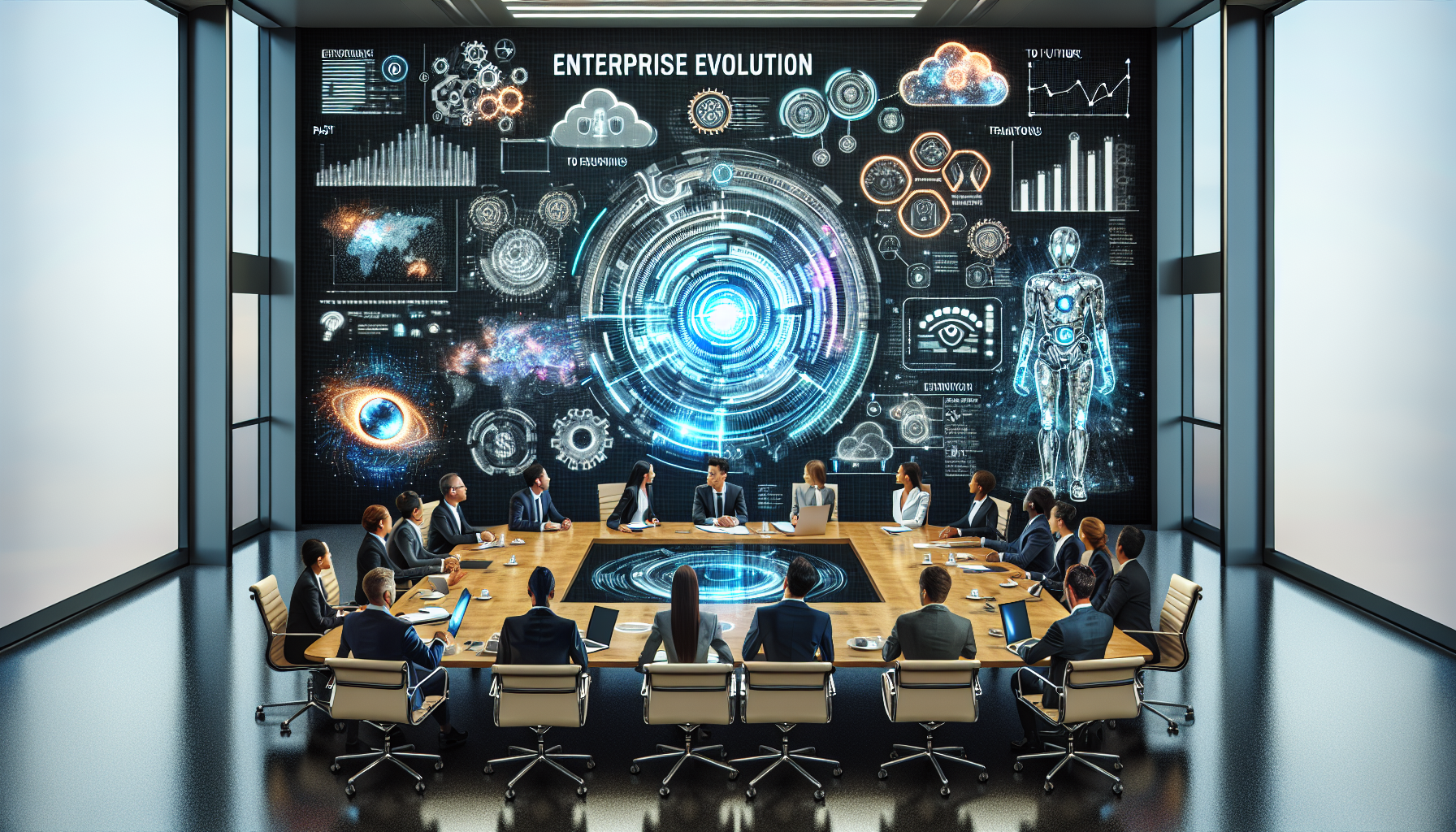The Role of AI in Shaping Tomorrow’s Enterprises
The Landscape of AI in Business
Artificial Intelligence (AI) is permeating every sector, from manufacturing to customer service, creating a paradigm shift in how enterprises operate. By integrating AI into core business functions, organizations are not only enhancing their productivity but also redefining their market strategies. The ability of AI systems to analyze vast amounts of data in real-time empowers businesses to make informed decisions swiftly, adapt to changing market conditions, and meet customer demands more effectively.
Enhancing Decision-Making with Data Analytics
One of AI’s primary roles in shaping tomorrow’s enterprises is through advanced data analytics. Traditional decision-making processes rely on historical data and human intuition often subject to bias. AI transforms this by employing machine learning algorithms that can analyze patterns and trends within datasets far beyond human capability. This leads to predictive analytics, wherein businesses can anticipate customer preferences or market trends before they occur. For instance, companies like Amazon utilize AI algorithms to recommend products based on individual customer behavior, significantly increasing sales and enhancing customer satisfaction.
Automation of Routine Tasks
AI facilitates the automation of repetitive, time-consuming tasks that traditionally required human intervention. This capability enables employees to redirect their efforts toward strategic thinking and innovation. Tasks such as data entry, scheduling, payroll processing, and customer inquiries can be managed efficiently through AI-powered systems like Robotic Process Automation (RPA). Salesforce, for example, integrates AI within its CRM platform to automate data filling and streamline customer interactions, freeing up sales personnel to focus on building relationships and closing deals.
Personalization in Customer Experience
Personalization has become a critical driver of customer loyalty and retention. AI allows businesses to deliver customized experiences at scale by analyzing individual customer data in real-time. By leveraging Natural Language Processing (NLP) and machine learning, companies can interact with customers through chatbots that understand and respond to inquiries with a personal touch. Brands like Netflix utilize AI to curate shows and recommendations based on viewing history, ensuring a tailored user experience that keeps customers engaged.
Streamlining Supply Chain Management
Supply chain management is another domain where AI is making significant inroads. AI enhances supply chain operations by analyzing data across various touchpoints, predicting demand fluctuations, and identifying potential disruptions. Companies can optimize inventory levels, reduce waste, and improve delivery schedules using AI tools. For instance, Walmart employs AI algorithms to predict stock levels based on customer buying patterns, enabling better inventory management and ensuring products are readily available when customers need them.
Enhancing Cybersecurity
As enterprises digitize operations, they become increasingly vulnerable to cyber threats. AI plays a pivotal role in bolstering cybersecurity measures. Machine learning algorithms can detect anomalies in user behaviors or network traffic, identifying potential threats before they escalate. Businesses can leverage AI-driven security tools that continually learn from past cyber incidents to protect sensitive data. For example, Darktrace utilizes AI to create a ‘immune system’ for networks, autonomously identifying and responding to threats in real-time.
AI-Driven Innovation
Innovation forms the backbone of competitive advantage in today’s marketplace, with AI serving as a catalyst. By harnessing AI capabilities, organizations can experiment with new products and services more effectively. Techniques such as generative design enable engineers to explore multiple design possibilities quickly, leading to enhanced innovation in product development. Automotive companies like Tesla utilize AI in software updates and self-driving technology, paving the way for groundbreaking developments in electric vehicles.
Workforce Transformation
AI is not just a tool for business improvement but also a transformative force for the workforce. While there are concerns around job displacement, AI is more likely to augment human capabilities rather than replace them. Individuals equipped with AI tools can enhance their productivity, leading to a more skilled workforce. Companies that invest in upskilling employees to work alongside AI systems will foster an environment of collaboration between man and machine. This shift transforms the workplace into a more innovative and adaptive space.
Ethical Considerations and AI Governance
With the integration of AI in enterprises comes a set of ethical considerations and governance challenges. The data privacy concerns, algorithmic bias, and accountability for AI-driven decisions necessitate a robust framework for responsible AI use. Enterprises must prioritize transparency in their AI systems, ensuring that algorithms are trained on diverse datasets and that their operations align with ethical standards. Companies like Microsoft are actively pushing for AI governance initiatives, emphasizing ethical practices and compliance to build trust with consumers.
Cost Efficiency and Resource Optimization
Implementing AI technologies can lead to significant cost savings and resource optimization. AI systems enable more precise forecasting and resource allocation, minimizing operational expenditures. Various enterprises are utilizing AI to fine-tune their operations, leading to increased efficiency and profitability. For instance, airlines employ AI for dynamic pricing, adjusting ticket prices based on demand, seasonality, and customer behavior, ultimately enhancing revenue management strategies.
Collaboration and AI Ecosystems
The future of enterprise AI will not be about isolated solutions but rather collaborative ecosystems. Partnerships between different stakeholders—including tech vendors, startups, and academic institutions—are essential to drive innovation. Such collaborations harness diverse expertise and technology resources, allowing businesses to experiment and scale AI initiatives rapidly. The rise of open AI platforms fosters an interconnected approach where organizations can share insights and develop comprehensive solutions that address industry-wide challenges.
Conclusion of AI’s Impact on the Future
In sum, the role of AI in shaping tomorrow’s enterprises is multifaceted. From improving decision-making through enhanced data analytics to providing a more personalized customer experience, AI’s influence is transformative. Automation of routine tasks allows for workforce reallocation towards more strategic pursuits, and AI strengthens supply chain management and cybersecurity measures. Moreover, the ethical considerations surrounding AI usage encourage organizations to foster a culture of responsibility and transparency.
As enterprises continue embracing AI, adaptability and innovation will remain critical for success. The businesses that leverage AI effectively will not only thrive in competitive landscapes but also contribute to shaping a future characterized by enhanced efficiency, productivity, and ethical practices.


